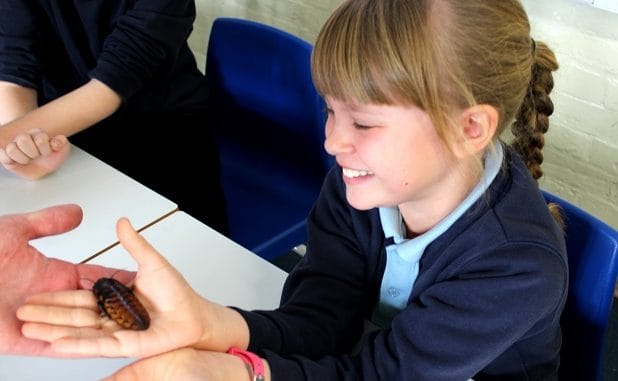
Year 3 children at Newington Community Primary School in Ramsgate have welcomed a host of mini beasts into their classrooms as part of their in-depth discovery project of the earth’s oldest living ecosystem.
The Zoo Lab educational team ‘rangers’ Rob and Tyler unveiled a host of creatures to help pupils understand the variety of species that survive in the tall, dense jungle with its multiple layers and tall canopies of vegetation.
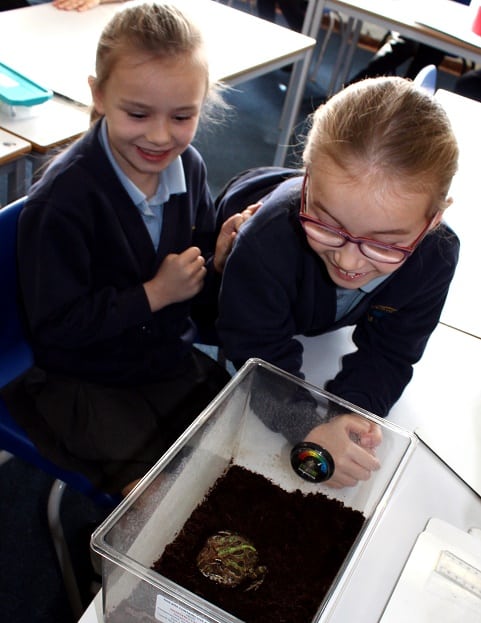
Children had close encounters with Limi the Pacman frog, Pocus the corn snake, Diva the Brazillian white kneed tarantula, Shrek the giant African land snail, Matilda and Maggie the Madagascan hissing cockroaches, and Lilly, the pink-legged millipede.
The ‘rangers’ told how the species adapted to life in the rainforests, about their individual habitats and their evolution – for example, the millipede was the first specimen to crawl out of the oceans onto land hundreds of millions of years ago.
Rainforests cover only six per cent of the Earth’s surface and yet contain more than half of the world’s plant and animal species.
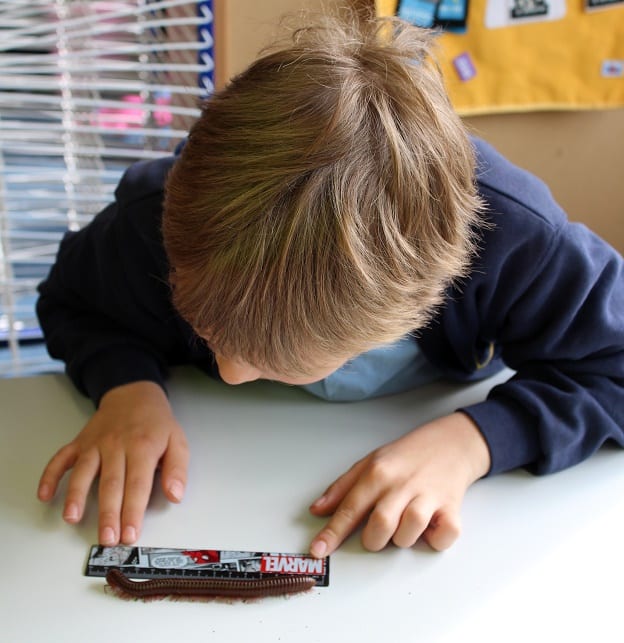
Head of Year 3 Tom Broughton said: “The Zoo Lab visit was fascinating. It was a brilliant way to round off our ‘rainforest’ and ‘let’s plant it’ topics.
“The Zoo Lab visit celebrated the children’s learning and showcased what they have already learnt. It ties in with the science requirements on the national curriculum, understanding how animals adapt to their environments.”
In the last two months the children have explored the geography of rainforests, the effects of deforestation and how natural materials of the rainforest are used in everyday lives.
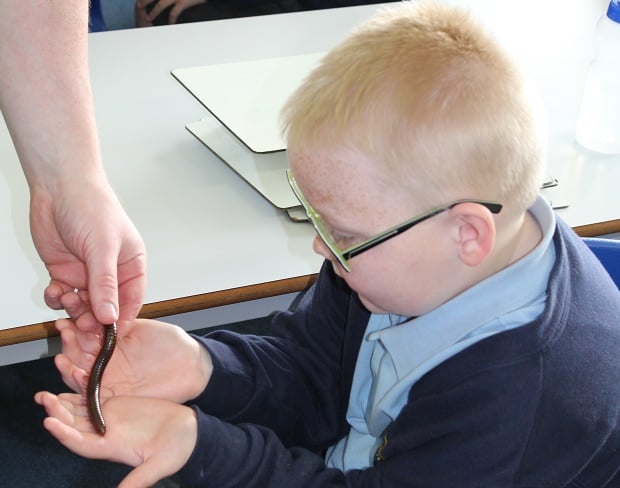
They investigated how the different layers of forest support different plants and animals, explored the area’s science and biodiversity, its indigenous tribes and tribal body art. They also decorated their classrooms with dangling vines, leaves and creepers, supported by informative and colourful displays about the rainforest and creatures that live there.
Head Teacher Cliff Stokes said: “These sessions are so important as they bring to life and reinforce what we are teaching. They finish their topics with a real insight into learning.”
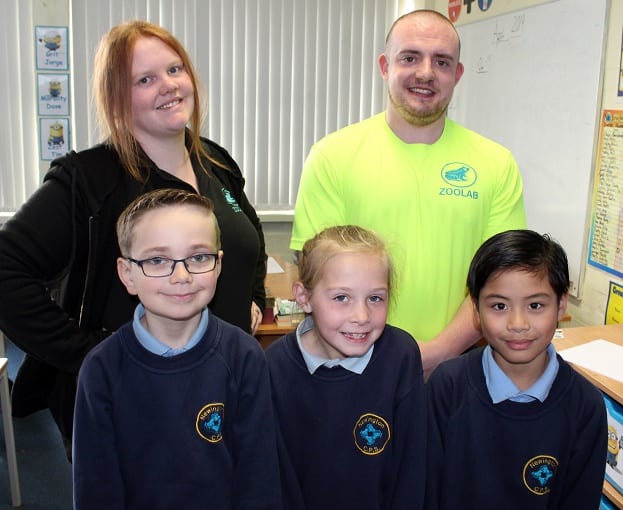
Zoo Lab say: “We explain the concepts of science in ways that children can readily see and touch. Children get the chance to see, touch and handle animals, and to understand more.
“Zoo Lab is about fun and imagination – we take the children on a voyage of discovery. In everything we do, animals are at the centre of things.
“As rangers, we live with and care for our animals at home: they are not items to be put away in a box, but are part of our lives. We want our animals to be part of other people’s lives too.”

